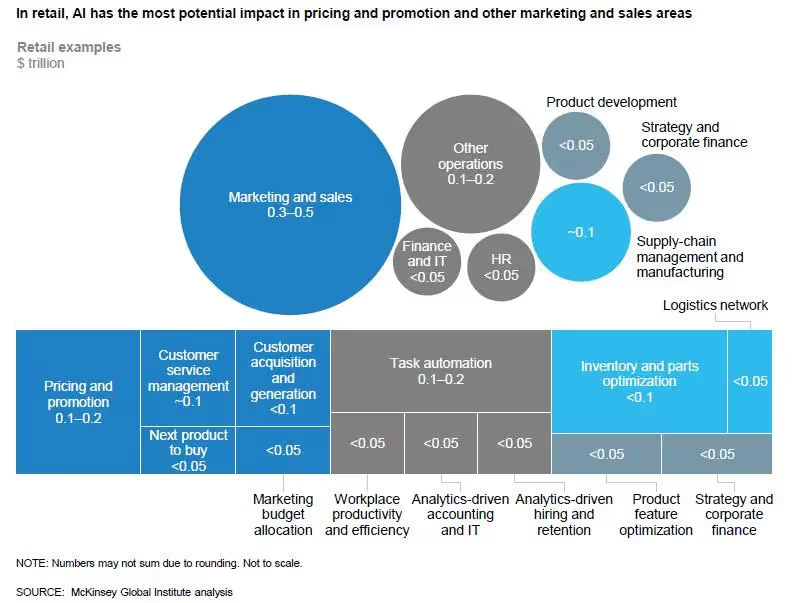

Foresight is no longer a superpower, it's a strategic advantage. AI and Large Language Models (LLMs) are rewriting the rules of demand forecasting, empowering businesses across industries to anticipate customer needs with unparalleled accuracy. Imagine knowing exactly what your customers will need, before they even know themselves. This blog dives deep into this transformative potential, exploring how AI can revolutionize everything from inventory management to personalized marketing campaigns, giving you the tools to make smarter decisions and dominate the market.

In the fast-paced retail and e-commerce industries, accurate demand forecasting is crucial for optimizing inventory levels, ensuring product availability, and minimizing stock outs or overstocking. AI and LLMs can analyze vast amounts of consumer data, including purchase histories, browsing patterns, and online reviews, to anticipate demand fluctuations and tailor product offerings accordingly.
By accurately forecasting demand, retailers can streamline their supply chain operations, reduce inventory carrying costs, and enhance customer satisfaction through improved product availability and timely replenishment.

Manufacturers and supply chain organizations rely heavily on precise demand forecasting to optimize production planning, resource allocation, and logistics operations. AI and LLMs can analyze complex datasets encompassing historical sales data, market trends, raw material availability, and global economic factors to generate accurate forecasts.
These advanced technologies can help manufacturers ensure timely production, minimize excess inventory, and avoid costly production stoppages or bottlenecks. Additionally, AI-driven demand forecasting can aid in optimizing transportation routes, reducing logistics costs, and enhancing overall supply chain efficiency.
The hospitality and tourism industries are highly influenced by seasonal trends, economic conditions, and consumer preferences. AI and LLMs can analyze data from various sources, including booking platforms, social media, and travel reviews, to forecast demand for hotel rooms, airline tickets, and other travel-related services.
By accurately predicting demand patterns, hospitality businesses can optimize pricing strategies, staffing levels, and resource allocation, enhancing customer satisfaction and maximizing profitability. Additionally, AI-driven forecasting can aid in targeted marketing campaigns, attracting potential customers during peak demand periods.
Accurate demand forecasting is essential for energy and utility companies to ensure reliable power generation, distribution, and resource management. AI and LLMs can analyze historical usage data, weather patterns, economic indicators, and consumer behavior to predict energy consumption accurately.
By forecasting demand with precision, energy companies can optimize power generation, implement effective load balancing strategies, and plan for infrastructure upgrades or maintenance proactively. This not only improves operational efficiency but also contributes to sustainable energy management and reduced environmental impact.
In the healthcare and pharmaceutical industries, demand forecasting plays a crucial role in managing inventory levels, ensuring the availability of medical supplies and medications, and optimizing resource allocation. AI and LLMs can analyze data from electronic health records, prescription patterns, disease prevalence, and population demographics to forecast demand for various healthcare products and services.
Accurate forecasting in this sector can help healthcare providers streamline inventory management, reduce wastage, and ensure timely access to life-saving medications and medical supplies. Additionally, AI-driven forecasting can aid in anticipating surges in demand during public health emergencies, enabling healthcare systems to prepare and respond effectively.
Advanced AI methods, such as deep learning and large language models (LLMs), offer a significant enhancement in value compared to traditional analytical approaches, with potential gains varying between 30 percent and 128 percent, depending on the industry sector.


